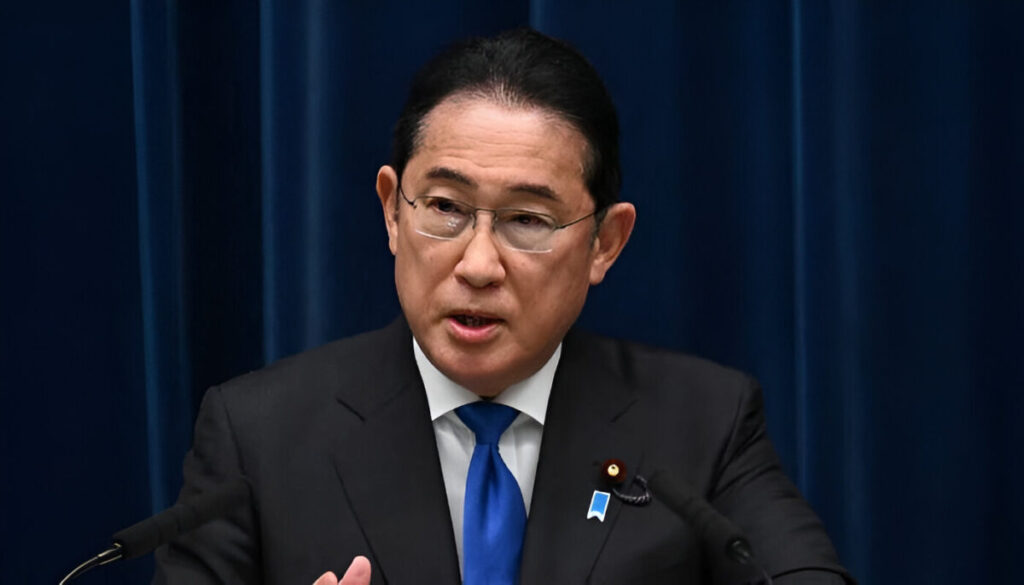ISLAMABAD, AUGUST 14: TOKYO: After resigning as prime minister next month, Fumio Kishida of Japan stated that he will not run for office again. His three-year tenure was tainted by political scandals and a general public unhappiness with growing living expenses.
He declared during a news conference that “politics cannot function without public trust,” revealing his intention to forego running for the position of head of the ruling Liberal Democratic Party (LDP).
“I made this heavy decision thinking of the public, with the strong will to push political reform forward.”
In September, the LDP will conduct a battle to choose his successor as party president and, consequently, as prime minister.
Following disclosures regarding the LDP’s connections to the divisive Unification Church, Kishida’s popularity declined when he assumed office in 2021.
The revelation of an undocumented political donation slush fund at LDP fundraising events further damaged his reputation. Additionally, he had to deal with public dissatisfaction as salaries could not keep up with the growing cost of living as Japan eventually recovered from years of deflationary pressure.
“An incumbent prime minister of the LDP cannot compete for president unless he is guaranteed victory,” Sophia University political science professor Koichi Nakano stated. It resembles sumo’s grand champion yokozunas. You must win with elegance in addition to just winning.”
As he steps down as head of the LDP, he will inherit the challenge of rebuilding public trust in the party while also addressing growing living expenses, intensifying geopolitical concerns with China, and the prospect of Donald Trump winning the presidency again next year.
Monetary policy and military buildup
Through his stint as Japan’s eighth-longest serving post-war leader, Kishida broke from previous economic policy by eschewing corporate profit-driven trickledown economics to set his sights on boosting household income, including wage hikes and promoting share ownership.
He led Japan out of the COVID pandemic with massive stimulus spending and also appointed academic Kazuo Ueda as head of the Bank of Japan (BOJ) to guide the country out of his predecessor’s radical monetary stimulus.
In July, the BOJ unexpectedly raised interest rates as inflation took hold, contributing to stock market instability and sending the yen JPY= sharply higher.
Kishida’s departure could mean tighter fiscal and monetary conditions, depending on the candidate, said Shoki Omori, chief Japan desk strategist at Mizuho Securities in Tokyo.
“In short, risk-assets, particularly equities, will likely be hit the most,” he said.
Kishida’s premiership was also marked by a changing security environment that spurred Japan to revisit its traditionally pacifist policy.
He unveiled Japan’s biggest military buildup since World War Two with a commitment to double defence spending aimed at deterring neighbouring China from pursuing its territorial ambitions in East Asia through military force.
At Washington’s prodding, Kishida also mended Japan’s strained ties with South Korea, enabling the two and their mutual ally, the United States, to pursue deeper security co-operation against the threat from North Korea’s missile and nuclear weapons programs.
“Personally, I wish he continued a little bit more as prime minister,” said Naoya Okamoto, a 22-year-old office worker in Tokyo, the capital.
